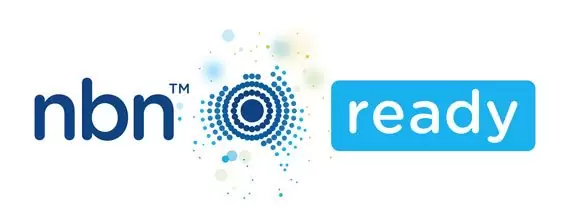How to choose cloud phone providers for your business needs
According to GlobalNewswire, the global VoIP market is projected to rise from USD 134.8 billion in 2023 to USD 151.2 billion. These figures clearly show that many are turning to cloud-based phone services and leaving behind traditional phone systems with outdated technology that simply cannot keep up with today’s communication demands.
To meet these ever-increasing demands, cloud phone providers offer many benefits and services that traditional phone systems cannot compete with. From cost savings and scalability to flexibility and advanced features, these phone systems are changing how you communicate as a business. While the range of services offered can seem impressive, these same options can make it difficult to choose the right cloud-based phone systems, especially if you’re unfamiliar with the available options.
How to choose the right cloud phone providers for your business
Selecting the right provider is an important decision that has the potential to change the way your business communicates and significantly impact your overall productivity and efficiency. The right provider can help you unlock a feature-rich solution that can streamline your operations and subsequently improve your customer experience as well.
Interestingly, a 2023 survey revealed that 60% of small businesses in Australia plan to switch to a cloud phone system by the end of 2024. This trend shows the growing recognition of the advantages offered by cloud-based solutions.
To ensure that your business makes the right choice, let’s take a look at some important factors that you need to consider when choosing cloud phone providers. We’ll dive deep into the key aspects that can make or break your communication infrastructure, helping you make an informed decision that aligns with your business’s goals and objectives.
Assess your business needs
This may sound like an obvious step, but many businesses tend to underestimate or overestimate their communication requirements. So, before diving into the world of cloud-based phones, it’s important to take a step back and consider your business’s communication needs. This initial assessment can help you build a strong foundation for your decision-making process and help you narrow down your options with top-quality providers.
Start by evaluating the size of your business and the number of employees who will need to access the phone system. Are you a small startup with a handful of employees? Or a larger enterprise with hundreds of employees spread across different locations? Understanding your business’s size will help you identify the providers that cater to your business size.
Next, identify the essential features your cloud phone system will need. Think about common features like voicemail-to-email, conferencing capabilities, or call forwarding. Consult different departments and make a list of the must-have features and nice-to-have additions to guide your search for the right provider.
Consider your future scalability and potential growth as well. Can your preferred cloud phone provider scale up or down with your business? Ensure that you can add or remove users seamlessly without disruptions to your business operations or costly upgrades.
Compare features and integration capabilities
Cloud phone systems offer many features designed to enhance business communication. When comparing providers, consider the following:
-
Essential features: Ensure that the provider offers core functions like call routing, voicemail-to-email, and video conferencing capabilities—all of which are must-have features for any business.
-
Integration with existing tools: Look for cloud phone providers that seamlessly integrate with your existing business tools and platforms like CRMs and helpdesk software. This integration can help you improve your workflow efficiency and customer service.
-
Mobile app functionality: Having a mobile app is a feature that most providers offer, especially given that in early 2024, 33.59 million mobile connections were active in Australia. Evaluate the user experience and features offered by each provider’s mobile app and see if it adds value to your business communications.
-
Advanced features: Look for cloud phone providers that offer innovative solutions like interactive voice menus, personal assistants, and call reports. These technological advancements can offer you valuable insights and streamline your communication processes.
By carefully assessing these features and integrations, you can select the provider that aligns with your business communication needs without the hassle of changing most or all of your existing tools and platforms, saving you time and money.
Analyse pricing models and total cost of ownership
The feature-heavy benefits of cloud phone systems are clear and comprehensive. But what about the cost implications and the potential ROI that you stand to gain by opting for the right provider?
When choosing a provider, consider the financial aspects. But the stated price of the package should never be the sole consideration, you should also consider;
-
Pricing models: Compare per-user pricing versus feature-based pricing options. Determine which models align best with your business structure and level of usage.
-
Setup and hardware costs: Consider the upfront costs associated with the implementation. This can include everything from installation/setup fees to hardware requirements (if any).
-
Ongoing maintenance fees: One of the top benefits of cloud-based phone systems is a reduction in maintenance requirements. However, it’s always a good idea to check if there are any costs involved, especially when it comes to updates and support services.
-
Contract terms and flexibility: Review contract terms offered by different providers. Pay attention to commitment periods and scalability options.
-
Potential ROI and long-term savings: There are many long-term savings associated with cloud phone systems. To put these savings into perspective, research shows that VoIP solutions save 90% on international calls, 40% on local phone bills, and 75% on operational costs.
Review customer support and training options
Even if you select the most advanced and feature-rich cloud phone provider, you still need great support to bring it all together. That’s why it’s important to carefully evaluate the customer support and training offerings before settling on a provider.
First, look for providers that can offer flexible customer support options, whether it’s via the phone, email, or even live chat. Check if their services are available when you need them and consider testimonials from existing customers for more clarity.
Take a look at their onboarding process and training resources as well. Assess if they can offer you the support you need, provide practical tools for a smooth transition, and help you maximise the features available to you.
As mentioned earlier, customer reviews can also be a great way to gauge satisfaction levels and identify if any recurring issues could end up affecting your business operations and communications.
A strong track record is also important to demonstrate a commitment to continuous improvement and regular updates based on the latest technologies and features entering the market.
By understanding these elements, you can find a provider that not only offers you excellent service but also gives you the necessary tools to succeed with a brand-new system to elevate your business communications.
Choose the right cloud phone for business communication efficiency
If you’re still using outdated, legacy phone systems, now is the time to take action and evaluate your current communication operations against future communication needs. Think about how cloud-based phone systems could transform your business.
Keep in mind that cloud phone systems are always evolving and choosing the right provider means that your business communications can keep up with these changes. With the right cloud phone system in place, you’ll be prepared to meet the communication challenges of today and tomorrow.
FAQs
How long does it typically take to set up a cloud phone system?
Set-up time varies depending on business size and complexity. Most cloud phone providers offer streamlined setup processes to minimise disruption.
Can I keep my existing phone numbers when switching to a cloud phone system?
Yes, most cloud phone providers offer number porting, allowing you to transfer your existing phone numbers to the new system.
Are cloud phone systems suitable for remote or distributed teams?
Absolutely. Cloud phone systems are ideal for remote work, allowing employees to access the phone system from anywhere with an internet connection. They often include features like virtual extensions and mobile apps to support distributed teams.



